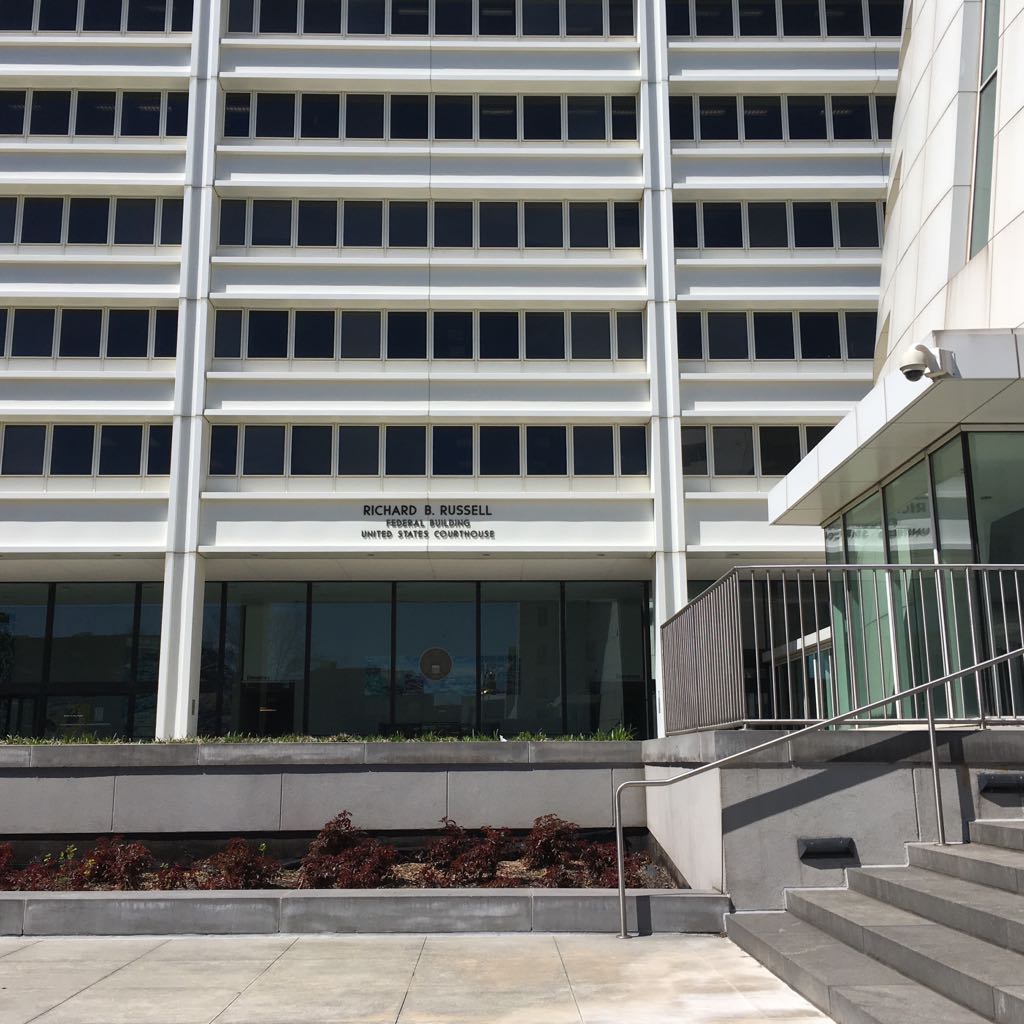Federal Judge Considers Ways To Combine Equifax Class-Action Complaints

A federal courtroom in Atlanta was packed Tuesday morning for a status conference hearing with more than two dozen attorneys representing more than 371 class-action complaints across the U.S. that have been filed against Equifax.
Tasnim Shamma / WABE
A federal judge considered how best to combine hundreds of lawsuits against Atlanta-based credit agency Equifax in the first hearing about class-action complaints against the company on Tuesday.
Banks, consumers and small businesses are suing the credit agency after a massive data breach exposed personal information like social security numbers and birthdates of 147.9 million people in 2017.
A federal courtroom in Atlanta was packed Tuesday morning with more than two dozen attorneys. Chief United States District Judge of the United States District Court for the Northern District of Georgia Thomas W. Thrash assigned a leadership team of 26 attorneys earlier this year to represent more than 371 class-action complaints across the U.S. that have been filed against Equifax.
Status Conferences
At the hearing, Thrash asked if attorneys had any issues working with attorneys on similar class-action complaints in Fulton County Superior Court being heard by Judge Melvin Westmoreland. Equifax filed a motion to dismiss those cases.
“My inclination is to pick up the phone and call Judge Westmoreland,” Thrash said. “I’ll go attend his status conferences or he’ll come to mine.”
Thrash is also the judge presiding over the SEC complaints against former Equifax chief information officer Jun Ying. Ying was charged with insider trading.
Professor Elizabeth Burch specializes in class-action lawsuits at the University of Georgia.
“Essentially what he’s doing is trying to coordinate between different governments and different state lawsuits,” Burch said.
Thrash said he would confer with the judge in the Fulton County court cases, but would keep status conference meetings in the civil case against Jun Ying separate.
Settlement Option
Burch said that class-action allegations can take five to six years before they are decided or settled.
“It depends on how Equifax responds to this. If they respond by saying you know we’re sorry it’s our fault, let’s just sort of focus on damages and getting this put behind us, then it might not take nearly as long,” Burch said. “If Equifax takes the tack that we want to fight this tooth and nail, then they can really drag the proceedings on.”
However, Burch said most clients consider settlements seriously.
“I would imagine that they’re thinking pretty seriously about settlement because lawyers aren’t cheap and one would hope that they would want that money to go to consumers or financial institutions who are harmed rather than their own attorneys,” Burch said.
A document filed by plaintiff’s attorneys on Monday states settlement after discovery is a possibility.
Incorrect Notification Letters
On Tuesday, Atlanta-based credit agency Equifax also said it recently sent out notification letters to incorrect mailing addresses.
The letters were to notify additional consumers that some of their information may have been exposed.
A spokesperson for Equifax said in a statement, it was “a very small percentage” and that no credit data or sensitive information were in those letters.








